P. F. Kluge Writer of the Year (Micronesia)
2024 Peace Corps Writer of the Year

P.F. Kluge (Micronesia 1967-69)
P.F. Kluge (Micronesia 1967-69) Writer-in-Residence at Kenyon College, is the author of fourteen books and scores of magazines, newspaper and academic journal articles. The films Dog Day Afternoon and Eddie and the Cruisers are based on his writing. In 1975, Kluge returned to Micronesia as a director of the Constitutional Convention that created the Federated States of Micronesia. He is the author of the Preamble to the Constitution. For his book, The Edge of Paradise: America in Micronesia, initially published by Random House and currently in paperback from the University of Hawaii Press, Kluge was awarded the Paul Cowan Prize for the best nonfiction book by a returned Peace Corps Volunteer.
P. F. Kluge’s Books

“A thriller set in the Pacific islands I saw as a Peace Corps Volunteers. The novel was suggested by a 1967 visit by actor Lee Marvin to the island of Saipan, where I was his guide.”
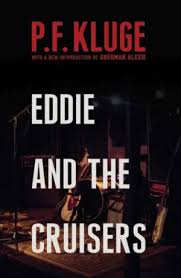 “The novel is set in New Jersey, much of it in Vineland where I had a summer job on the town newspaper in 1962. The novel and the film have been described as a rock and roll Citizen Kane.”
“The novel is set in New Jersey, much of it in Vineland where I had a summer job on the town newspaper in 1962. The novel and the film have been described as a rock and roll Citizen Kane.”
 “The Season For War was obscurely published and lightly reviewed. And yet, it was praised as a ‘magnificent historical novel, shocking, poignant and finally, morally stunning, about American’s awakening.’ I may have written as good novel later on never a better one.”
“The Season For War was obscurely published and lightly reviewed. And yet, it was praised as a ‘magnificent historical novel, shocking, poignant and finally, morally stunning, about American’s awakening.’ I may have written as good novel later on never a better one.”
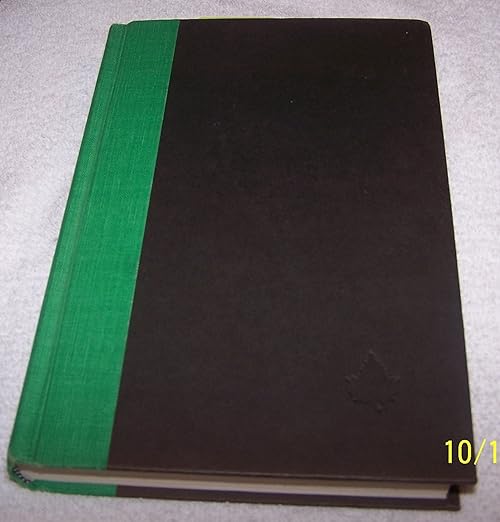 “A continuing interest in the love/hate relationship between America and the Philippines underlies my second novel.”
“A continuing interest in the love/hate relationship between America and the Philippines underlies my second novel.”
The Edge of Paradise: America in Micronesia (1991)
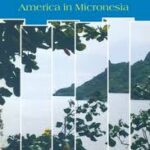 “The Peace Corps sent me to the Pacific Islands—Micronesia. The islands stayed with me and I’ve kept returning, checking on place and people I care about. This makes me like many other returned Peace Corps Volunteers. “
“The Peace Corps sent me to the Pacific Islands—Micronesia. The islands stayed with me and I’ve kept returning, checking on place and people I care about. This makes me like many other returned Peace Corps Volunteers. “
Alma Mater: A College Homecoming (1993)
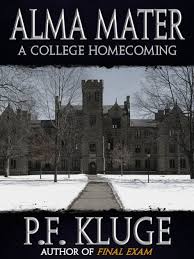 “Gambier, Ohio is my alma mater, my current employer. If you live in a place, you write about it. Alma Mater is a loving, scathing, funny account of a year in the life of Kenyon College.”
“Gambier, Ohio is my alma mater, my current employer. If you live in a place, you write about it. Alma Mater is a loving, scathing, funny account of a year in the life of Kenyon College.”
 “A novel—which ought to be a movie—has music, sex, romance, polities, exotic locations. It was an American Year of Living Dangerously. Of all my books, this was the most fun to write.”
“A novel—which ought to be a movie—has music, sex, romance, polities, exotic locations. It was an American Year of Living Dangerously. Of all my books, this was the most fun to write.”
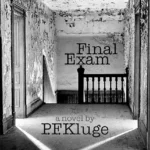 “A series of murders panics a small college. The question is: who’d want to kill a college? And who might be able to save it?”
“A series of murders panics a small college. The question is: who’d want to kill a college? And who might be able to save it?”
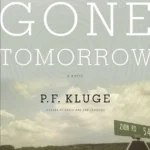 “I’ve read and enjoyed a lot of academic novels but I’ve never come across one that was set in a place resembling the college that I attended and now serve as Writer in Residence.”
“I’ve read and enjoyed a lot of academic novels but I’ve never come across one that was set in a place resembling the college that I attended and now serve as Writer in Residence.”
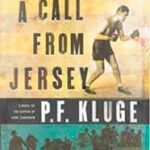 “I first wrote it twenty years ago, drawing on my New Jersey home, my German immigrant family. This is a novel that Kirkus Reviews described as ‘heartfelt, funny and poignant.’”
“I first wrote it twenty years ago, drawing on my New Jersey home, my German immigrant family. This is a novel that Kirkus Reviews described as ‘heartfelt, funny and poignant.’”
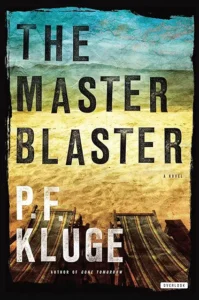 This is not a young man’s book; it’s the work of a writer who has seen the world, literally and figuratively, for a long time.”
This is not a young man’s book; it’s the work of a writer who has seen the world, literally and figuratively, for a long time.”
“This novel is set in Saipan. I was there in the 1960s with the Peace Corps, and have returned many times since. Saipan is one of my islands, part of my life-long fascination with bounded, yet also boundless, place.”
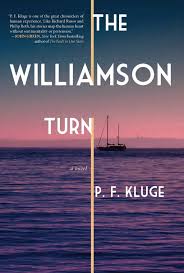 “A novel of loneliness, death, and friendship, The Williamson Turn deftly explores what it is to be an American traveling the world, and how our relationships to each other can be comforting, challenging, and at times alienating.”
“A novel of loneliness, death, and friendship, The Williamson Turn deftly explores what it is to be an American traveling the world, and how our relationships to each other can be comforting, challenging, and at times alienating.”
 “Keepers is a collection of nonfiction—personal essays, travel writing, thoughts on contemporary education.”
“Keepers is a collection of nonfiction—personal essays, travel writing, thoughts on contemporary education.”
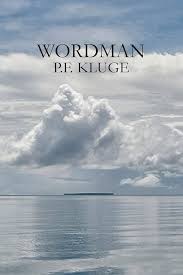 “This is published in conjunction with Peace Corps Writers, relates my experience as a young Peace Corps Volunteer in Micronesia in the North Pacific, and traces how that unexpected assignment and location served to inform and shape my writing career. It is both a memoir of those times and a guide to writing in its many forms — travel writing, fiction, and nonfiction.”
“This is published in conjunction with Peace Corps Writers, relates my experience as a young Peace Corps Volunteer in Micronesia in the North Pacific, and traces how that unexpected assignment and location served to inform and shape my writing career. It is both a memoir of those times and a guide to writing in its many forms — travel writing, fiction, and nonfiction.”
Congratulations P F Kluge, a well-earned award after many great books, with more to come!